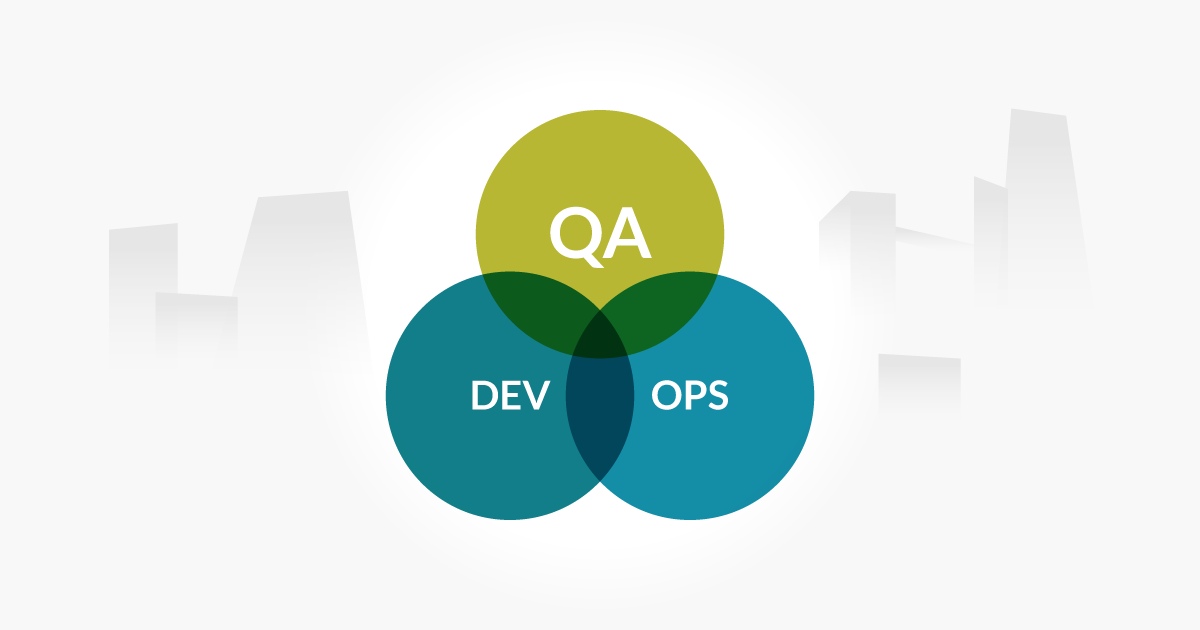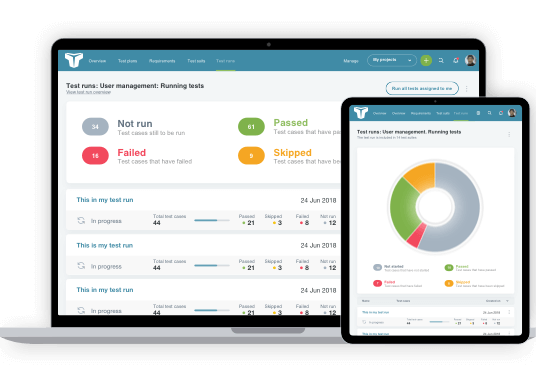DevOps allows software development and testing to occur simultaneously with continuous collaboration between all stakeholders involved in the chain. Organizations moving to DevOps notice a cultural shift, which is hastening its adoption by others. DevOps helps organizations to meet ever-changing customer needs.

Previously, software development organizations functioned through two autonomous entities i.e. developers and QA. Both, including their roles and expectations, are regarded as being separate activities carried out in order to deliver a product. However, this excludes the people who do not belong to engineering process (i.e. Operations), while development and QA work cohesively and unanimously to achieve a common objective.
What is the Role of QA in DevOps?
Let us look into the perspective of QA in DevOps. Usually, QA gets the build once it is deployed in a designated environment and follows the test execution (function and regression testing) process. When the build has been verified by QA, it then goes into the production. This process usually takes a couple of days in the QA environment, but this is not the case in DevOps.
In a DevOps scenario, the development and testing process QA is integrated and takes on a collaborative approach. In DevOps, QA quickly feeds fresh development code into the production environment with the collaboration of the DevOps team, who then provide the necessary tools and infrastructure to make it a process smooth, making sure all changes function as expected. In order to ensure quality throughout the delivery cycle, both teams (QA and development) share the responsibility. Therefore, everyone involved in DevOps is responsible for the quality of the product and a timely delivery.
For QA, the following points need to be adhered to in a DevOps cycle:
- All work must align to the standards expected of procedure
- Automated test cases with maximum code coverage
- Deployment should be automated
- Automated test cases should be properly aligned with the Continuous Integration cycle
In order to achieve higher accuracy in DevOps, it is necessary to automate all testing processes by correctly configuring them for automatic deployment without any disruption. Specialized automation and continuous integration tools should be made available to achieve the goal.
QA Responsibilities in DevOps
According to experts, QA has a number of responsibilities in DevOps. We shed light on a few of them below.
- QA should aim to detect a bug at the earliest point in the cycle and also prevent potential bugs from reappearing in the production environment.
- QA should not limit their role to only finding and preventing defects, but should also highlight problems in the processes and recommend changes wherever necessary. This practice is only possible if QA takes ownership of the improvement process in DevOps.
- QA should make sure that all environments required for testing should be standardized and deployments automated. There is no room for manual testing.
- Being a quality advocate, QA has influence on both development and operations. They should not just only find defects but also notice any opportunity to improve the quality of the product. In this way, quality will be checked at every stage.
Processes are moving towards faster testing and build deployment in order to meet the ever-growing demands of customers, so bear in mind that QA helps to fulfill and deliver all the objectives in DevOps. This situation has created the need for constant quality checking to provide flawless products.
Conclusion
QA’s role is changing in the current climate, where we need to ensure the timely delivery of products by focusing more on the needs of the customer. An inherent danger within the increasing demand for speed is releasing the build into production without paying close enough attention to quality assurance at all points in the application’s life cycle. Compromises like this can be nothing short of a disaster.
When the Agile model first appeared, it soon grew in popularity eventually overtaking the traditional model to became the preferred choice for software development. The future belongs to DevOps. It is an ongoing process which continues to bring improvements. In strenuous and demanding scenarios, there is a constant need to test the product along with development to ensure faster times to market by keeping cost-effectiveness in view as well. As can be seen above, everything discussed endorses the role of QA with DevOps, making them inseparable.
In order to enjoy the benefit of QA’s full potential with respect to DevOps, explore working on different automation and various continuous integration tools. Take into consideration how much automation is actually required, because this may vary from project to project, while remembering that ‘Continuous’ automation lies at the core of this concept.
About the writer
Syed Ali Imam
Syed Ali Imam is a Software Quality Assurance Engineer, currently working as a Functional Tester for Innovit Software Development in Australia.
All Syed Ali Imam's articles
